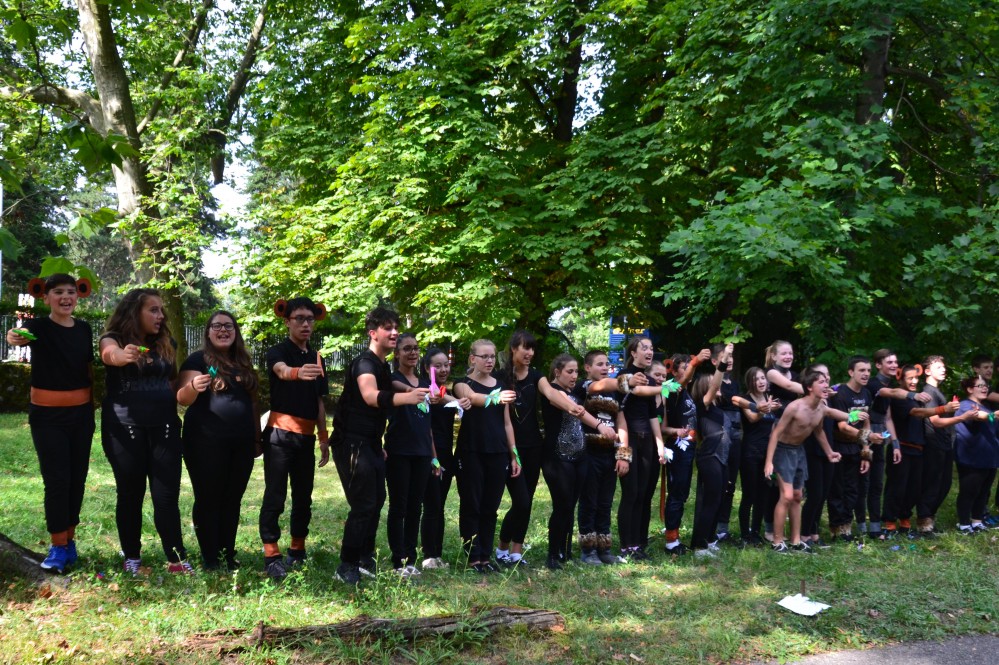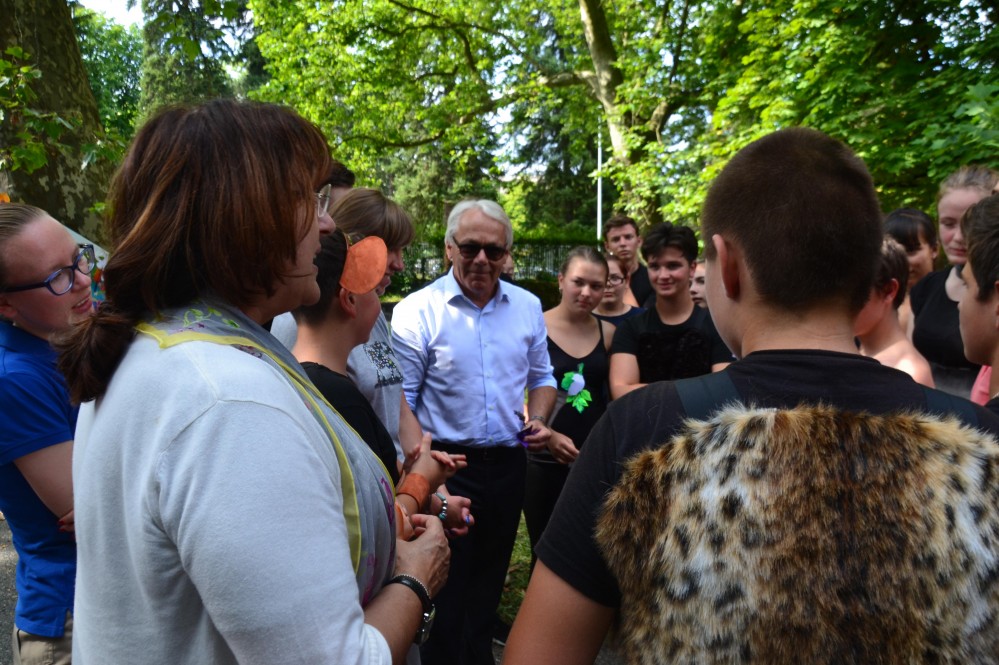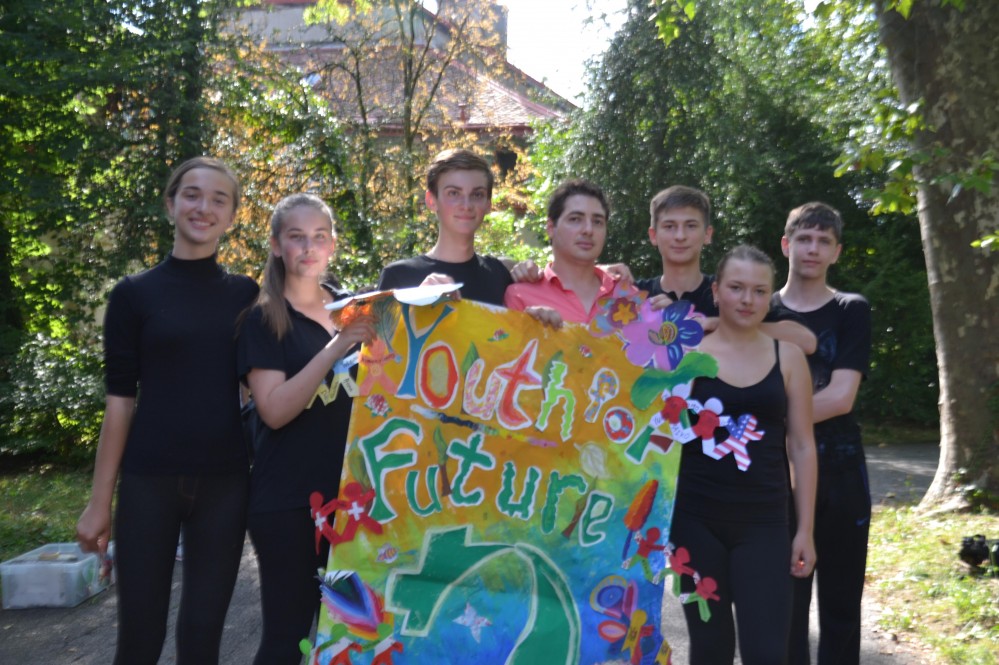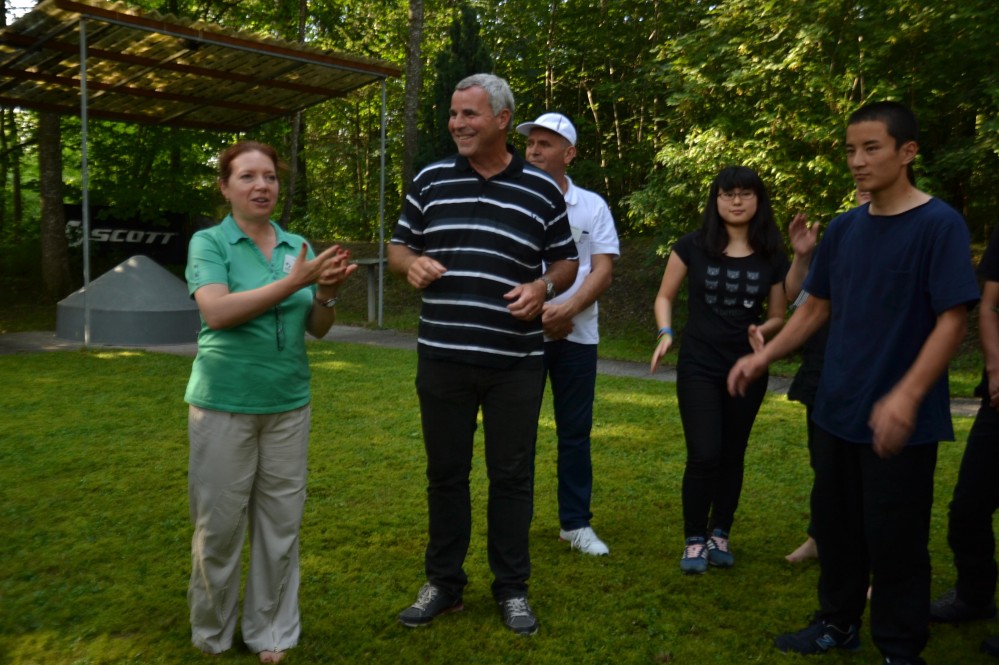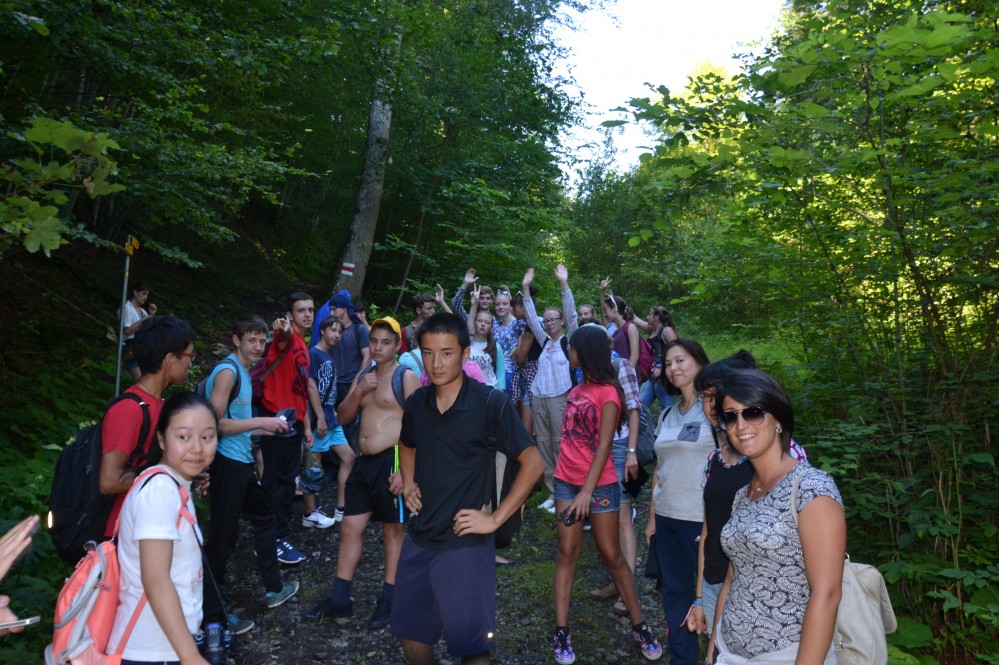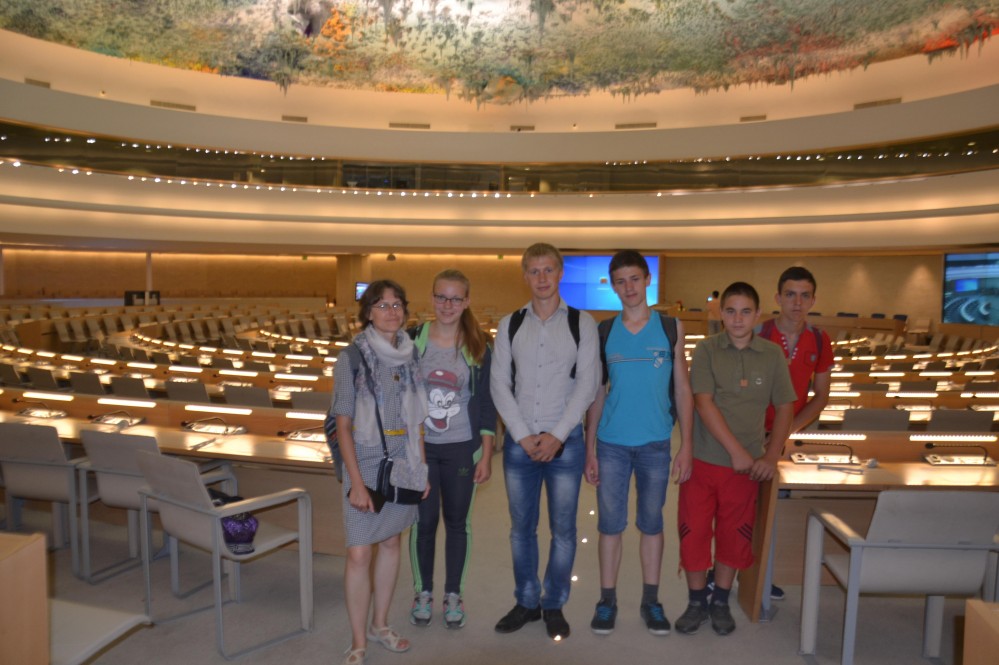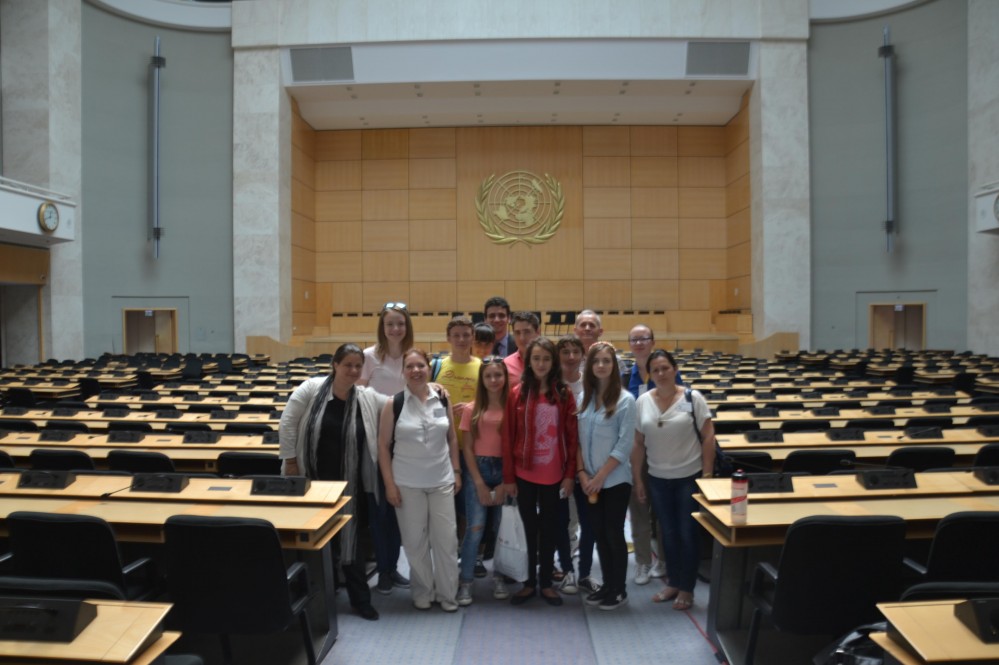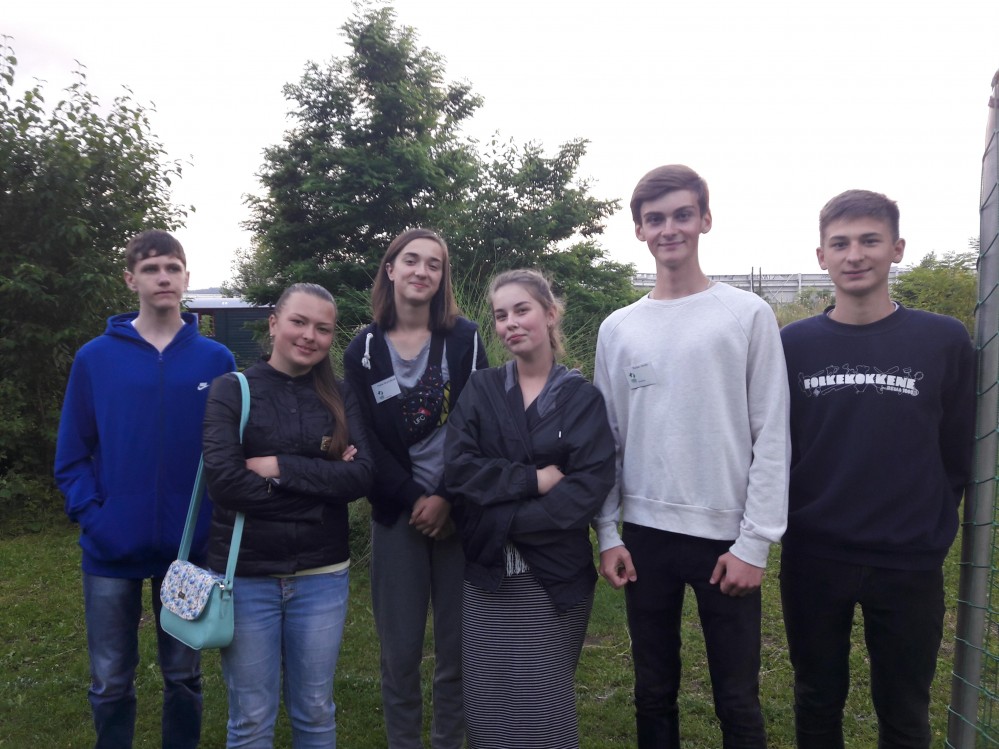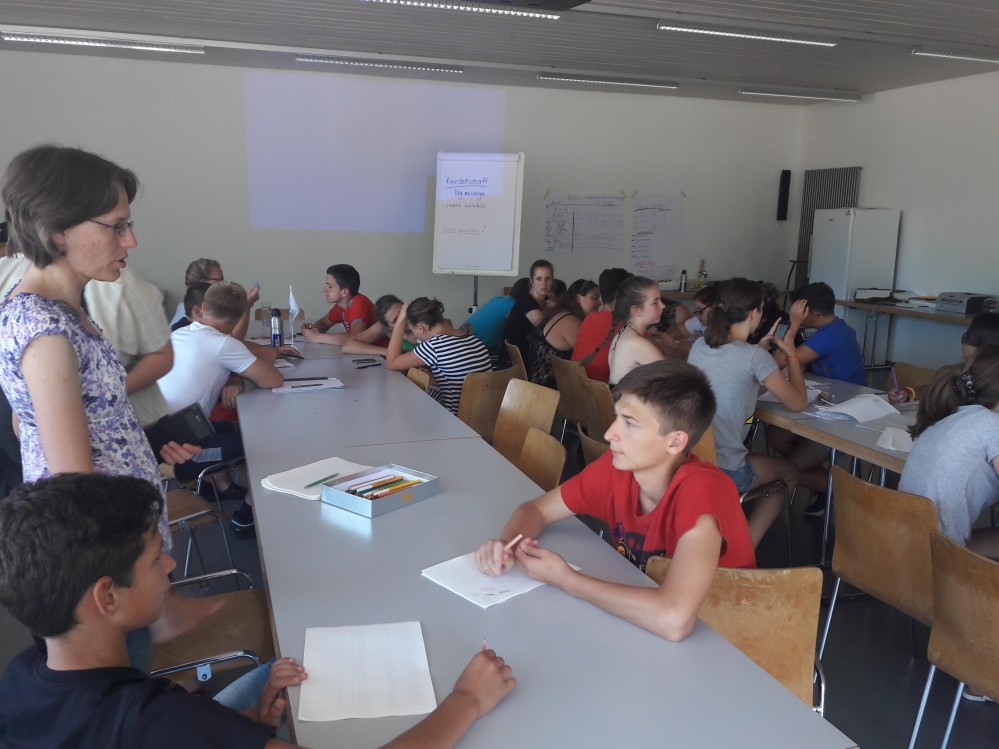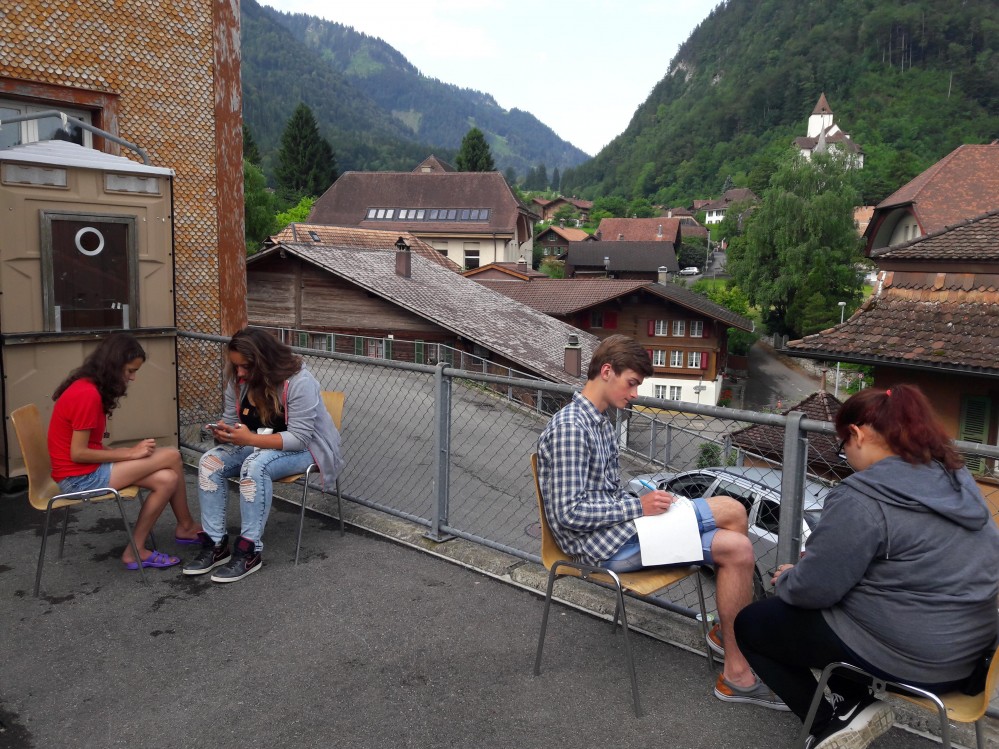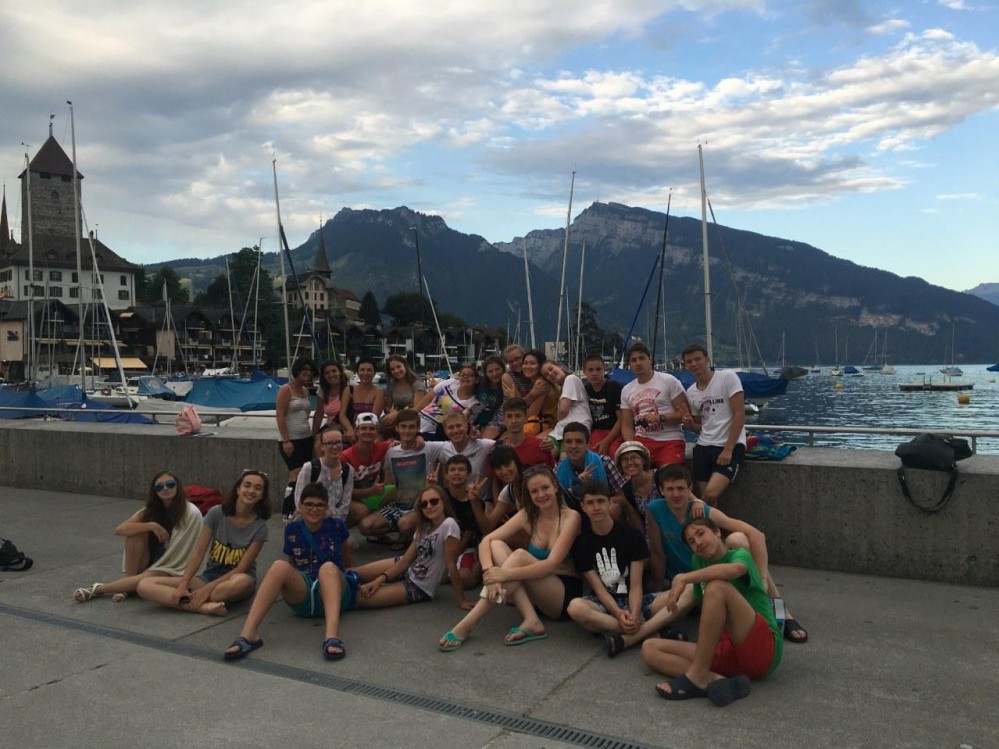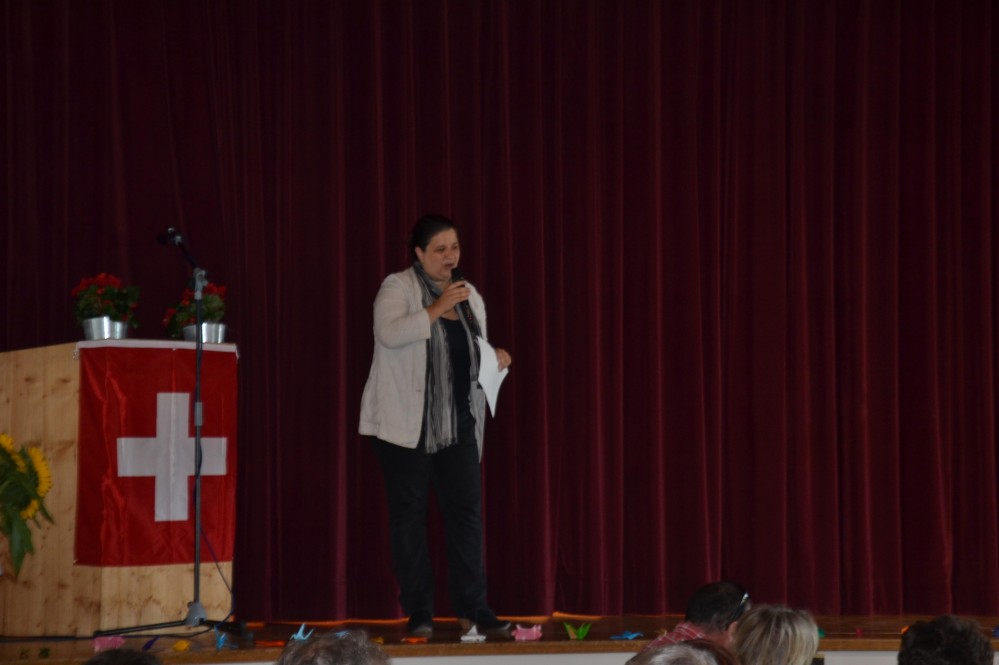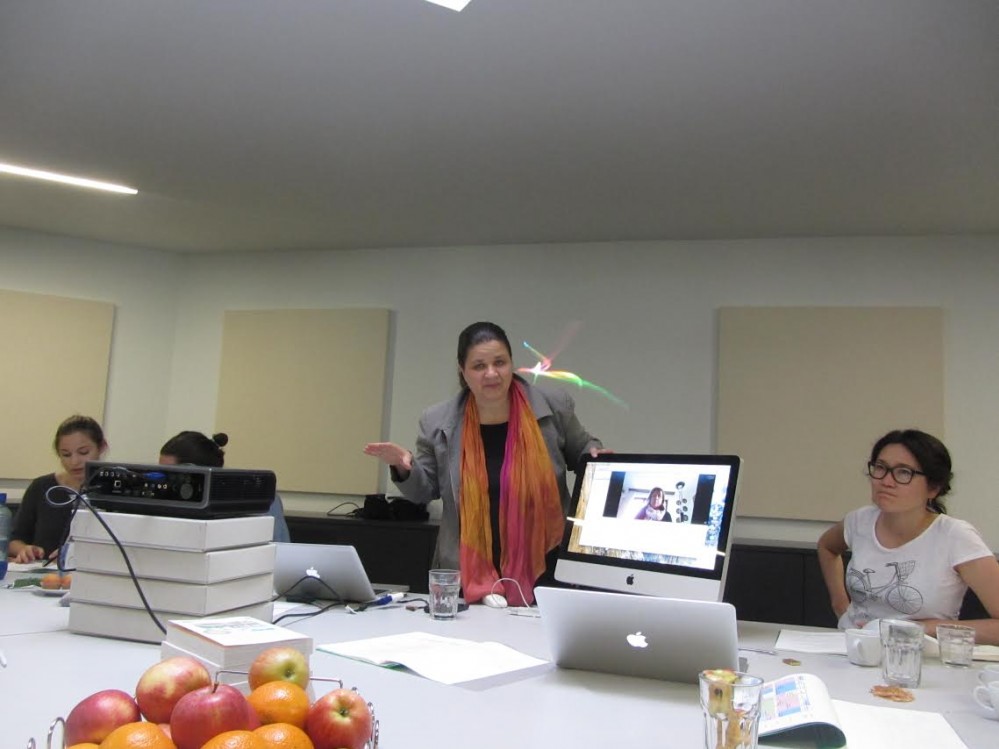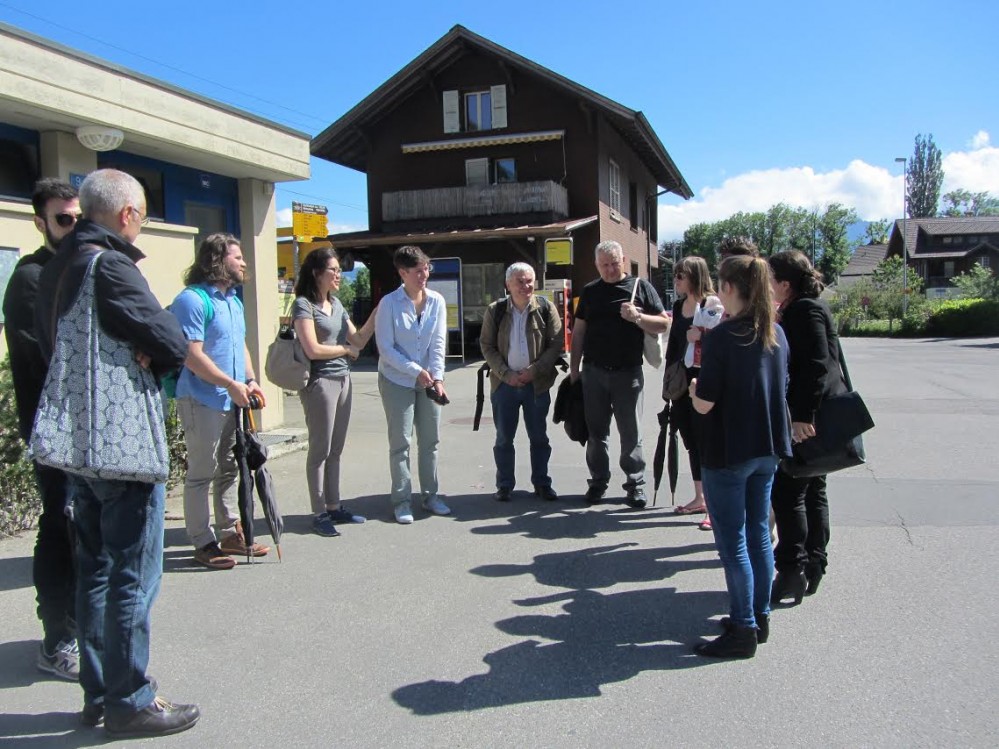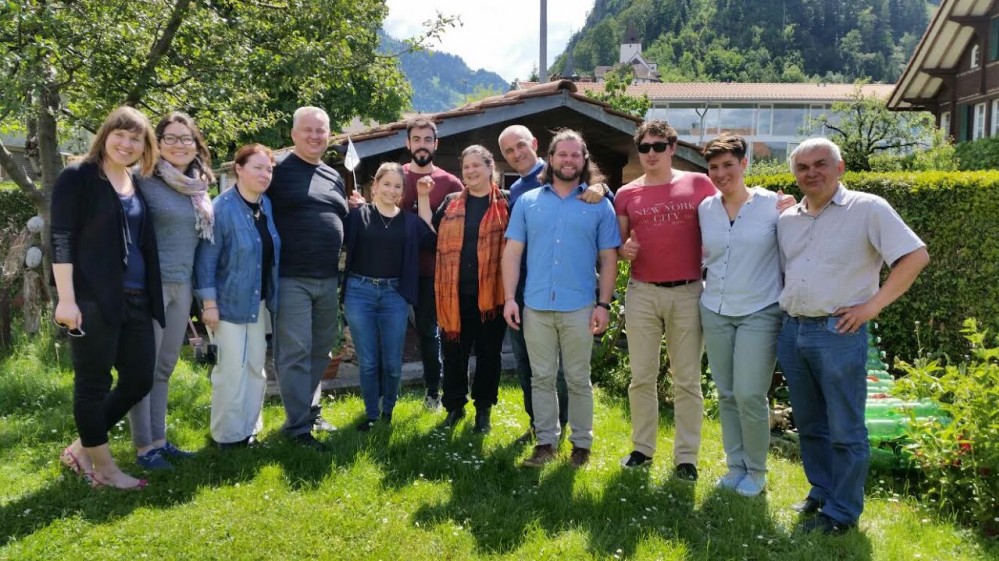Youth in Action 2016: Youth for a green future

This year the youth exchange project brought together young people from 6 countries. A group of 39 children from Ukraine, Belarus, Moldova, Japan, Italy and Switzerland, all took part in a Green Cross summer camp program. Youth Camp was implemented with the support and coordination of ch.Stiftung and held as part of Green Cross Social and Medical Care Program with the participation of Green Cross organizations in Ukraine, Belarus, Japan, Italy and Switzerland.
The target of this exchange was that the young people could recover in a healthy environment as well as to learn new competences and gain knowledge about health promotion, nutrition and environmental education, to develop new skills and practice intercultural communication. To make the camp most effective organizers held preliminary meeting from 5 to 7 June. Involved partners from participating countries discussed the activity program, organizational matters and logistics.
The participants were in the age between 14 and 17 years. The majority live in in the Chernobyl affected areas of Ukraine, Belarus and Moldova, as well as those from Japan are from the Fukushima region, and a number of the Italian students are part of a programme in Centro Padre Nostro to keep poor youths off the street in a disadvantaged district of Palermo. Camp activities took place from 15 July to 2 August. During the stay in Switzerland young people went to the Bern Oberland and lived in a quiet alpine village of Wimmis away from everyday problems and radiation stress.
In order to show the relevance of the environmental conservation and eliminating negative impacts in lives of people affected by radiation accidents and other hazardous calamities the camp participants practiced on the theatrical performance under the guidance of Alexander Grecu, talented actor and director of the Theatro Satirico from Moldova. The play, which was an adaptation of The Jungle Book in which Mowgli and his friends had to contend with the effects of a nuclear disaster near their forest and survived. The theatrical performance was put on to the audience in Zurich, Geneva, Thun and Wimmis.
Various seminars and cultural events were carried out for the participants of the camp. Most memorable was the excursion to the Federal Palace in Bern as well as trip to Geneva, which was followed by a visit to the UN building and the meeting at the International Committee of the Red Cross office. The children were delighted with the trips to Thun, Spiez, Zweisimmen, Müsingen, Rüttihubelbad and Canton of Aargau. There were a lot of meetings with the local municipalities, visits to private framings, private enterprises and processing enterprises.
Particular attention was paid to healthy nutrition. Children received a balanced diet, every day they ate the fruit, supported by water regime and much time outdoors. They all have had to adapt their daily habits to the unique challenges they face, such as preparing food in ways that minimize the effects of radioactive contamination. In combination with a healthy food and drink, which stimulate the metabolism, the level of contamination in the body can be reduced up to 80 percent.
Active way of life and physical activities play a very important role, so the camp hosted many sports, biking, games, among other things, swimming in the pool, Kneipp and hiking.
At a practical level, camp participants learned about managing radioactivity in their daily lives, preparing meals, dealing with the effects of radioactivity on the environment and health as well as shared their experiences, thoughts and ideas with young people from other countries, explored new horizons and through various informal techniques expressed vision and prospects for the future.
This camp was a success thanks to the efforts of all participating countries and partners involved, through numerous contributions, sponsorship and inputs from the stakeholders, the initiatives of local municipalities and ordinary citizens. Special thanks to GCCH Executive Director Nathalie Gysi, International SOCMED Program Director Maria Vitagliano, Program Assistant Tania Schellenberg and the entire SOCMED team for organizing the youth camp.
For our part and on behalf of the families, we express our gratitude to the organizers of the project and the unique opportunity for the children to spend time in different environment and improve health, to learn from the peers and gain other useful knowledge. We hope that the project will continue in the future, and children from the affected regions will be lucky to get substantial aid.
GCU










